*NURSING > TEST BANKS > TEST BANK-MATERNAL-NEWBORN NURSING: THE CRITICAL COMPONENTS OF NURSING CARE, 3RD EDITION, ROBERTA DU (All)
TEST BANK-MATERNAL-NEWBORN NURSING: THE CRITICAL COMPONENTS OF NURSING CARE, 3RD EDITION, ROBERTA DURHAM, LINDA CHAPMAN-comprehensive 2022
Document Content and Description Below
TEST BANK: MATERNAL- NEWBORNNURSING: THE CRITICAL COMPONENTS OF NURSING CARE, 3RD EDITION, ROBERTA DURHAM, LINDA CHAPMAN Chapter 1: Trends and Issues MULTIPLE CHOICE 1. The nurse is ... caring for a patient who is in labor with her first child. The patient’s mother is present for support and notes that things have changed in the delivery room since she last gave birth in the early 1980s. Which current trend or intervention may the patient’s mother find most different? 1. Fetal monitoring throughout labor 2. Postpartum stay of 10 days 3. Expectant partner and family in operating room for cesarean birth 4. Hospital support for breastfeeding ANS: 4 Chapter: Chapter 1 Trends and Issues Chapter Learning Objective: 1. Discuss current trends in the management of labor and birth Page: 4 Heading: Table 1-1: Past and Present Trends Integrated Processes: Nursing Process Client Need: Health Promotion and Maintenance Cognitive Level: Application [Applying] Concept: Evidence-Based Practice Difficulty: Moderate Feedback 1 This is incorrect. Fetal monitoring during labor began in the late 1970s. As such, this likely would have occurred during the mother’s labor and delivery during the 1980s. 2 This is incorrect. In the past, the average hospital postpartum stay was 10 days. Presently, the average postpartum stay is 48 hours or less. 3 This is incorrect. In the past, expectant partners and families were excluded from the labor and birth experience. Present trends involve the expectant partner and family in the labor and birth experience, including presence in the operating room for cesarean births. 4 This is correct. Hospital support for breastfeeding, including a lactation consultant and employment of the Baby-Friendly Hospital Initiative, were both enacted during the early 1990s. PTS: 1 CON: Evidence-Based Practice 2. A patient with a history of hypertension is giving birth. During delivery, the staff was not able to stabilize the patient’s blood pressure. As a result, the patient died shortly after delivery. This is an example of what type of death? 1. Early maternal death 2. Late maternal death 3. Direct obstetric death 4. Indirect obstetric death ANS: 4 CONTINUED...... [Show More]
Last updated: 2 years ago
Preview 1 out of 343 pages

Buy this document to get the full access instantly
Instant Download Access after purchase
Buy NowInstant download
We Accept:

Reviews( 0 )
$15.00
Can't find what you want? Try our AI powered Search
Document information
Connected school, study & course
About the document
Uploaded On
Aug 26, 2022
Number of pages
343
Written in
Additional information
This document has been written for:
Uploaded
Aug 26, 2022
Downloads
0
Views
56


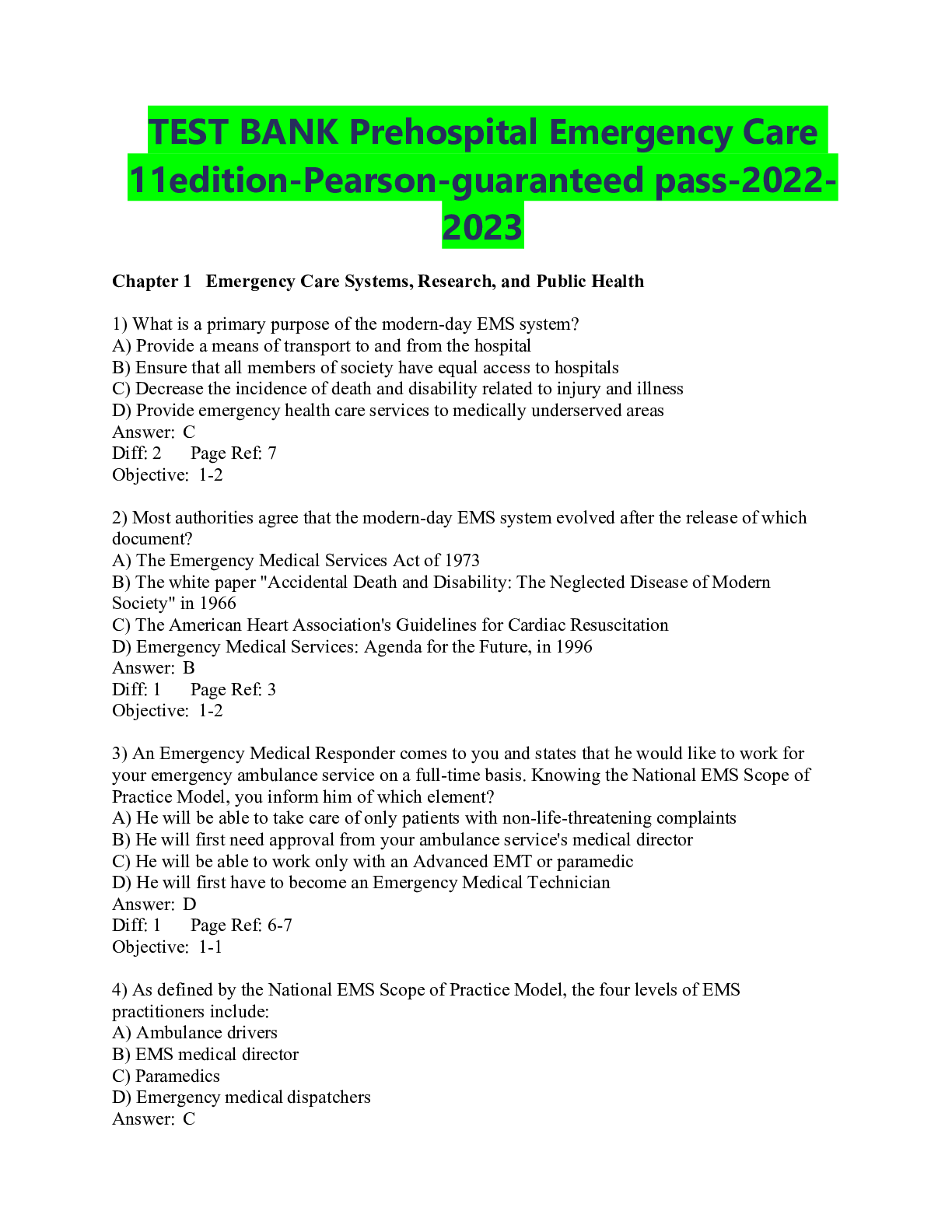
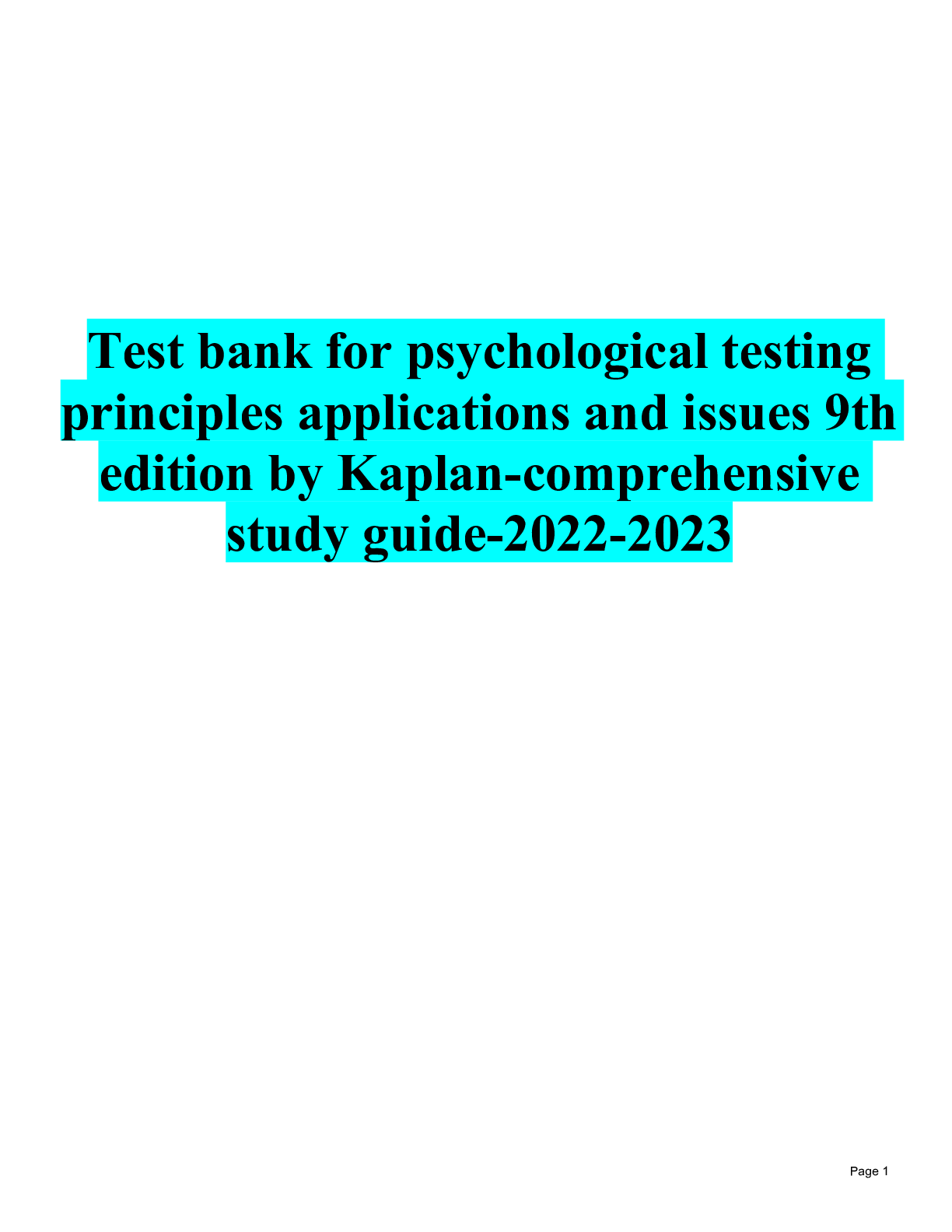




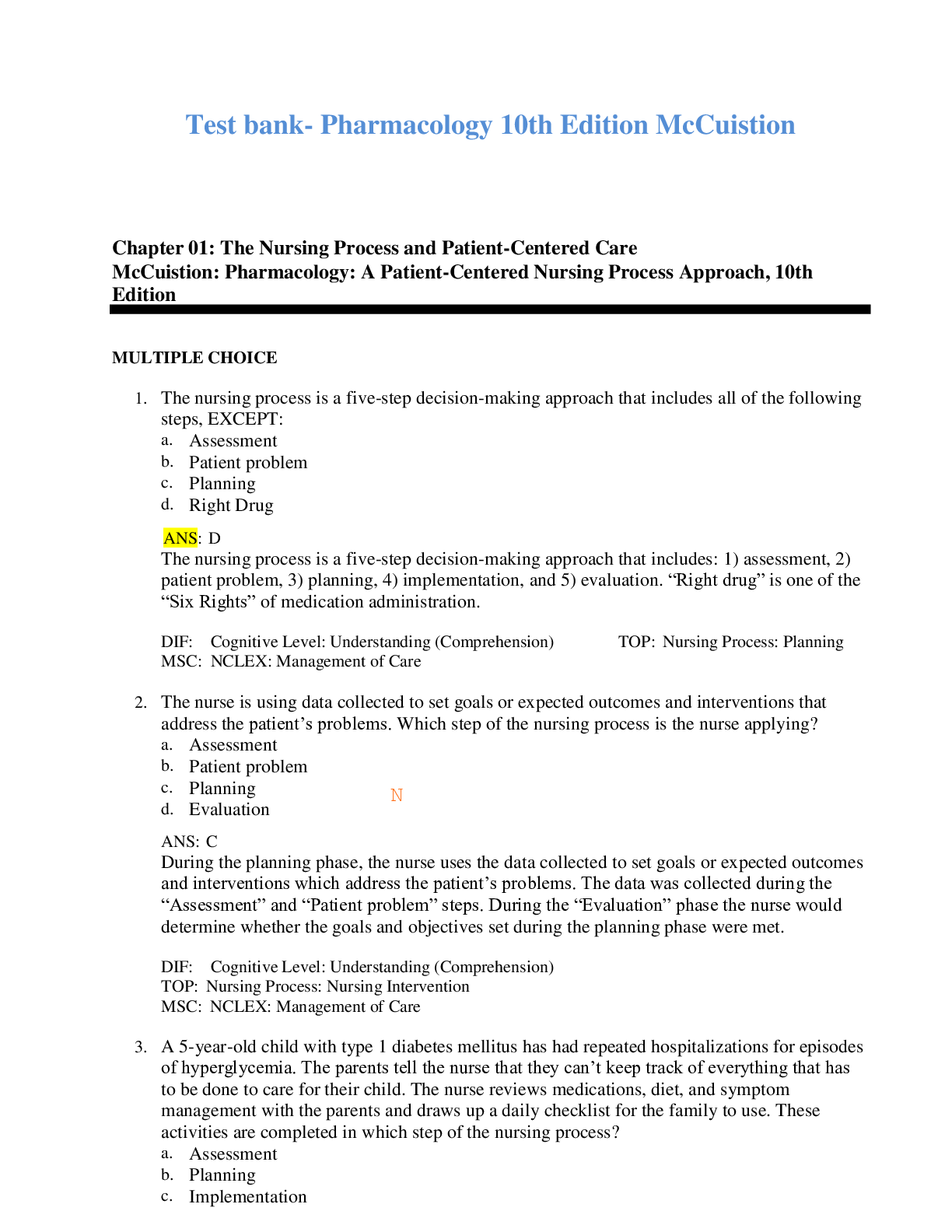
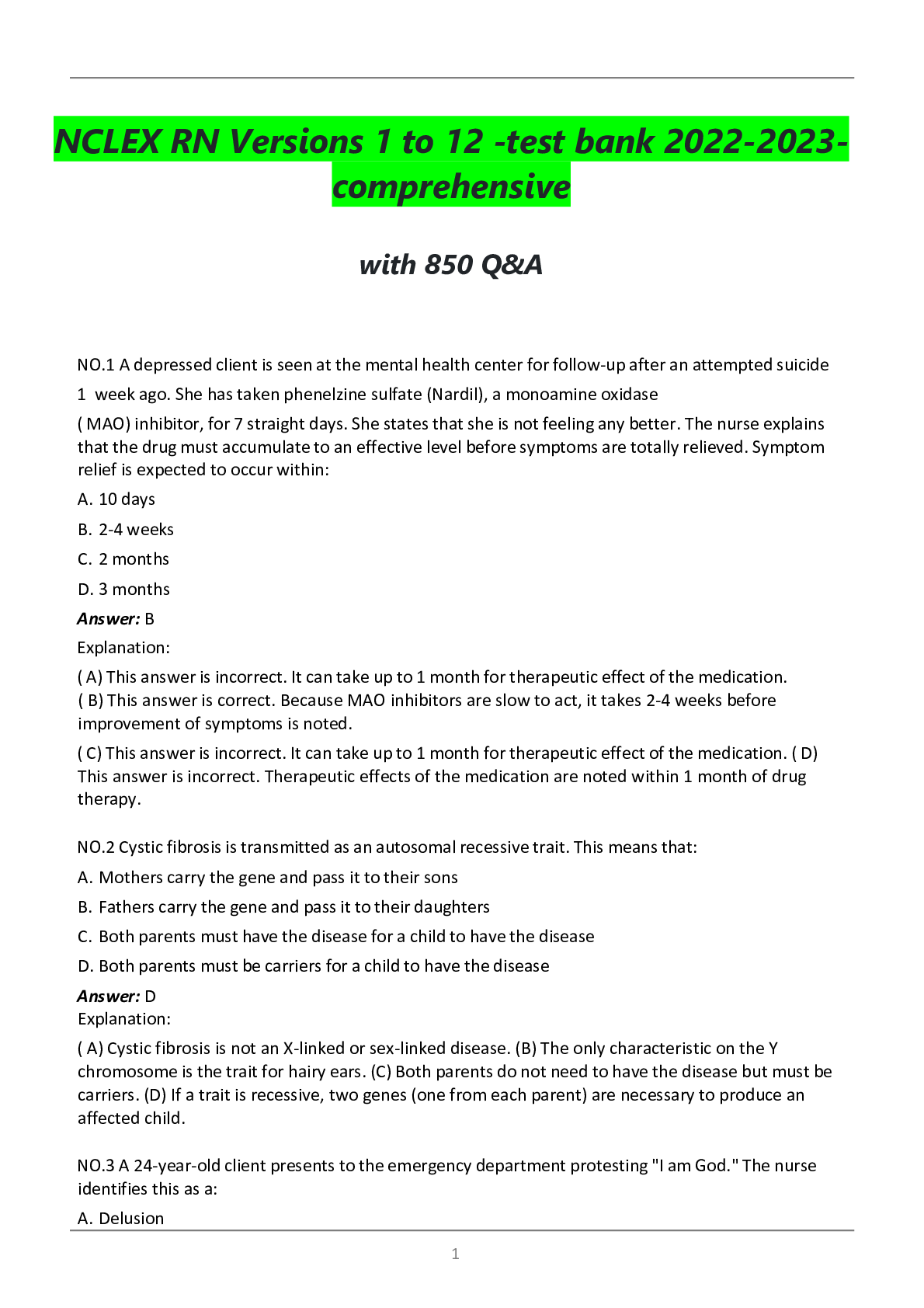
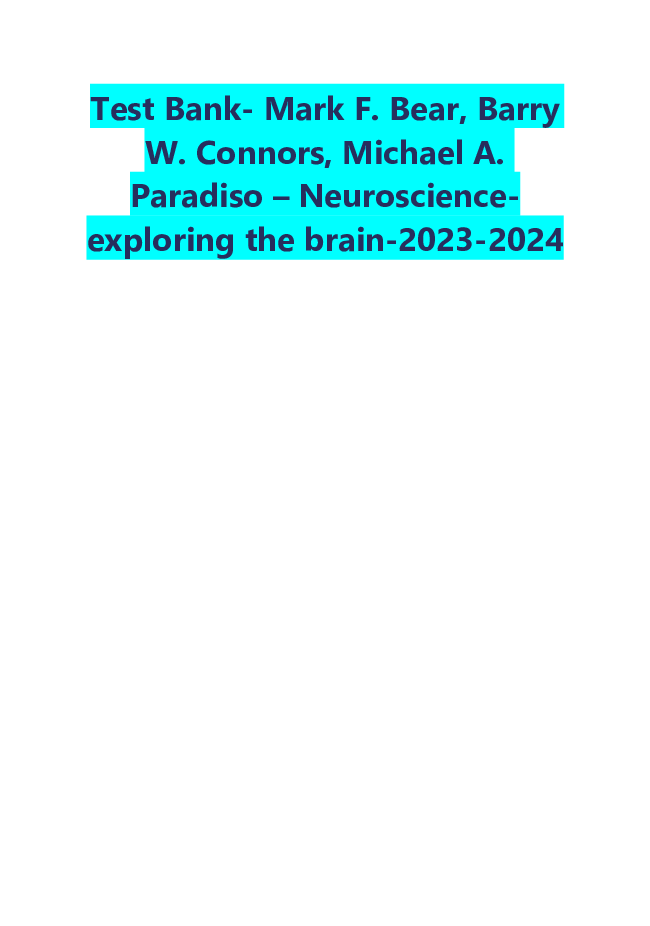

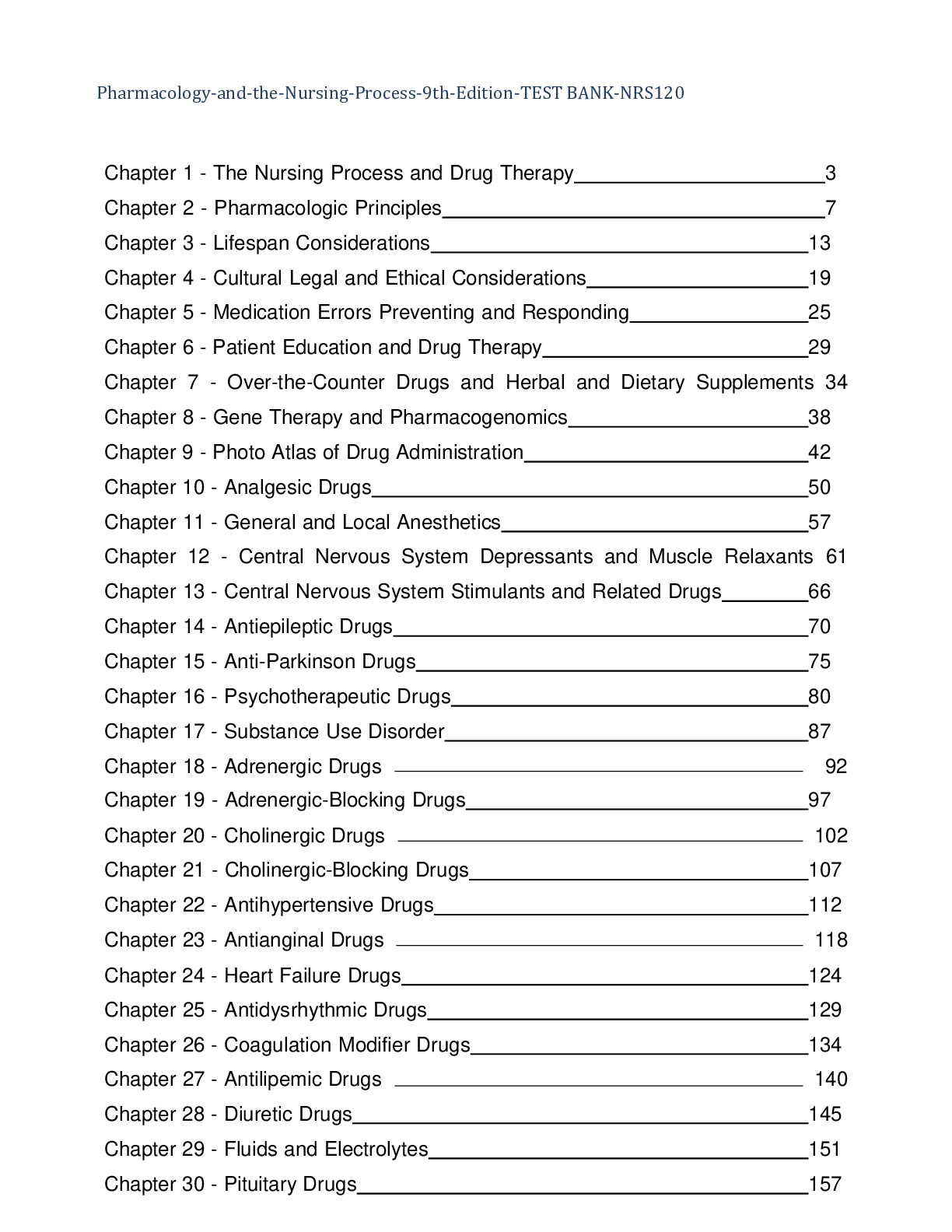
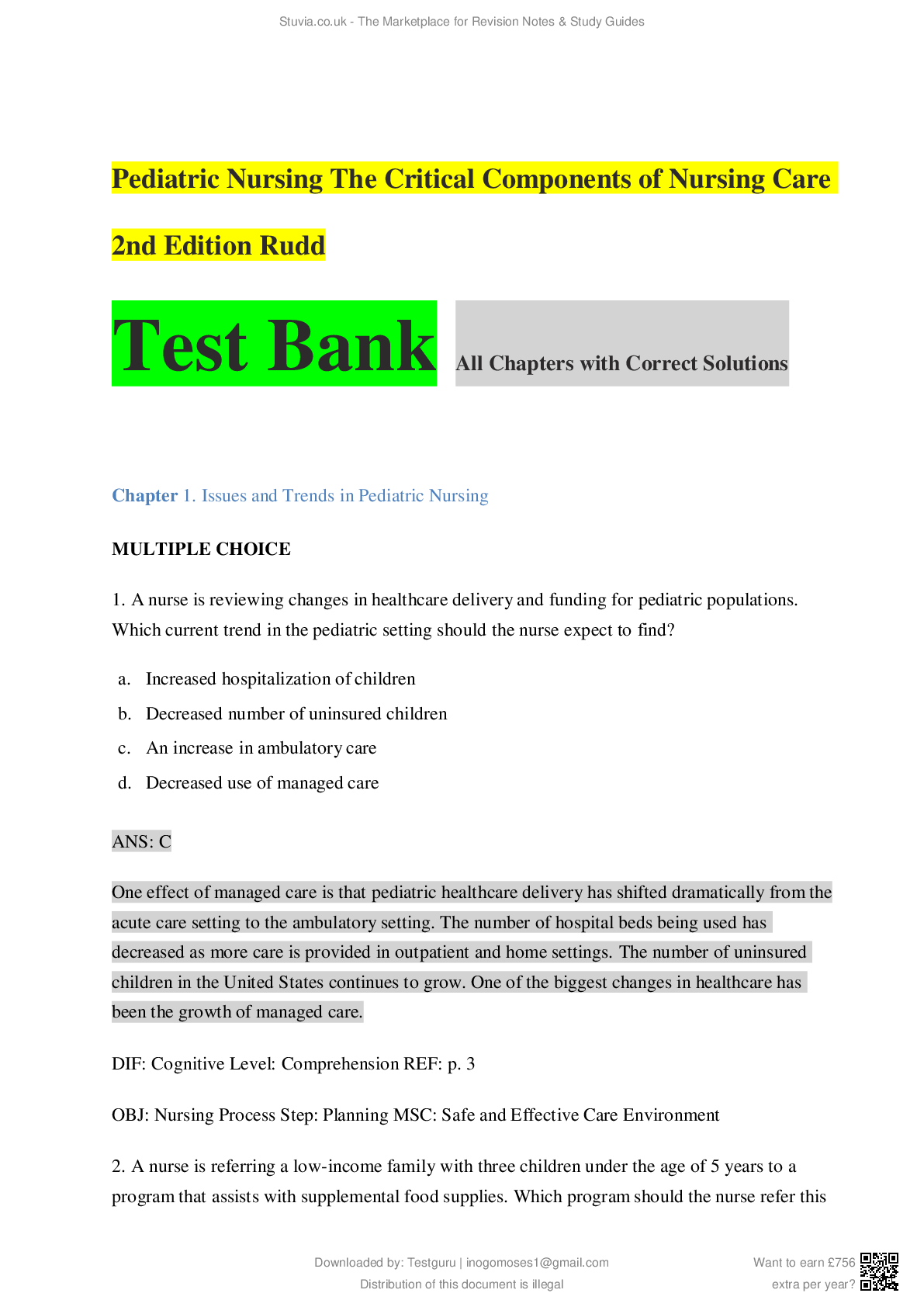



.png)

